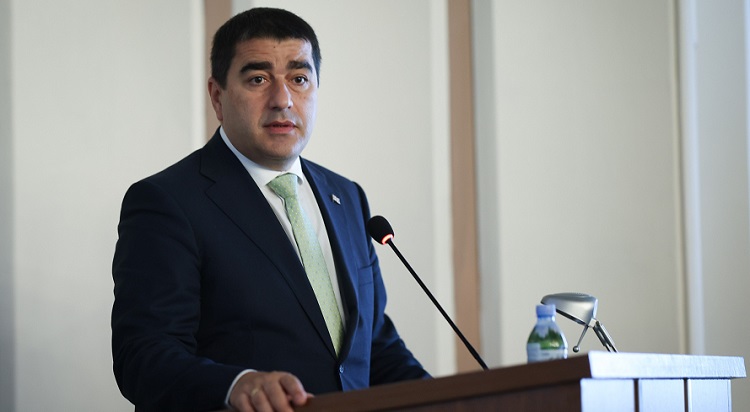Georgian Parliament Speaker criticises “western political bias” amid plans to ban opposition party

Papuashvili claimed “many European democracies” had banned parties deemed as threats to democracy. Photo: Parliament press office
Georgian Parliament Speaker Shalva Papuashvili on Tuesday claimed “political bias” from the country’s Western partners, particularly Germany, claiming “hypocrisy” in their criticism of the ruling Georgian Dream party’s plans to ban the United National Movement opposition following the parliamentary elections this month in light of German political parties’ motion to ban the far-right Alternative for Germany.
The AfD, which holds the second-highest support in Germany, is facing calls from the ruling Social Democrats and Greens, along with several opposition parties, for a ban on the group by the Federal Constitutional Court, citing its alleged undermining of Germany's democratic order, Papuashvili said in his social media post.
The official also noted “many European democracies” had similarly banned parties deemed as threats to democracy, citing a study indicating that between 1945 and 2015, 20 of 37 European democracies had prohibited over 50 parties.
The Parliament Speaker further pointed to Ukraine’s recent bans on the Communist Party and other groups it said were threatening its democracy and territorial integrity, as well as Moldova's actions against opposition parties.
Amid the international developments, Papuashvili claimed GD’s intention to ban UNM - which governed the country between 2004-2012 - if it secured the Constitutional majority of at least 113 seats in the 150-member Parliament in the October 26 vote, aligned with both Georgian law and democratic practices.
The official also highlighted UNM's record of being in “radical opposition”, which he claimed included threats to destabilise the Government and refusal to accept electoral outcomes since 2012.
Papuashvili stressed the Georgian Constitution provided criteria for banning political parties that “threaten the country's constitutional order or incite violence”, and expressed confidence GD would secure a “decisive victory” in the elections to initiate legal proceedings against UNM afterward.
The Parliament Speaker also reiterated the importance of judicial independence, urging foreign partners to refrain from interference in Georgia's legal matters, adding the “Georgian Government, our public, and foreign partners should fully trust judgement of the court when it comes to banning of UNM, which, I believe, would be the beginning of a convalescence of our political system”.
 Tweet
Tweet  Share
Share